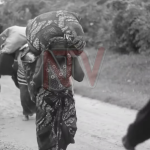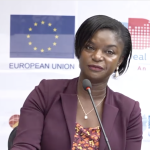Uganda, like many countries around the world, has seen exponential internet adoption since the 2010s, with millions of people coming online for the first time each year for various reasons.
The blocking of the internet—and particularly social media channels such as Facebook and Twitter (now X)—for the first time on the eve of the 2016 general elections in Uganda was a key testament to its power as a tool for social and civic expression. This tactic has since been adopted by several rogue regimes around the world.
As reliance on digital technologies—which are hardly policed—to make life easier grows, so does online violence, from fraud to the harassment of activists using cyberspace to drive social change. We have more in Panorama.







